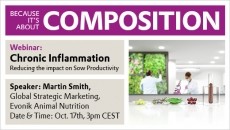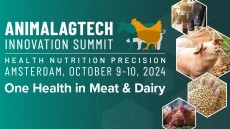US organic brand looks to feed, dairy production in ambition to be carbon positive

Work on the brand’s carbon neutral certification with the Carbon Trust has already started, said Deanna Bratter, senior director, public benefit and sustainable development with Danone North America. A life-cycle assessment is ongoing and intended to be used to set milestones for the process of becoming carbon positive.
“In addition, we partner with EcoPractices to conduct an in-depth sustainability analysis and we are in year two of a five-year soil health study,” she told FeedNavigator. “We are tracking tillage, cover crops, crop rotation, manure management, and more.”
“Achieving this goal in five years will be a challenge, but we believe that, as pioneers, we need to map the path forward,” said Bratter. “We are more than committed to meeting and exceeding this goal, and we like to say that the food system revolution is here. We see this as a challenge to ourselves and to the broader industry.”
From carbon neutral to carbon positive
The work to become carbon positive is building off of plans started by Horizon’s parent company Danone, said Bratter. Danone announced previously its interest in being carbon neutral across its company and all of its brands by 2050.
“Given the role and impact dairy has on the environment, Horizon Organic is an important brand for Danone to prioritize in this journey,” she said. “Danone is committed to emissions reduction targets that are validated by the Science-Based Targets Initiative and in line with the measures that are necessary to keep global warming below 1.5 degrees.”
Methane release reduction
As part of the process of being carbon positive, Horizon is set to address methane emissions, with manure management part of the initiative, said Bratter.
“In addition, we are exploring feed enhancements and adjustments that will help reduce methane production by cows,” she said.
Horizon remains committed to using organic production practices and maintaining certification, she added.
An additional step in the project to become carbon positive will involve modifications to farming practices, said Bratter. “This includes helping our 600+ family farmer partners institute regenerative soil practices, cow feed and diet management programs, along with energy efficiency [projects],” she added.
To support producers through the financial challenges that can hamper progress toward sustainable farming, the Horizon Farmer Investment Fund is being established, she said. The fund provides $15m in no- and low-interest loans and grants through to 2030.
The financial support is intended to help producers while they take part in training and adopting new practices and technology, she said.


















